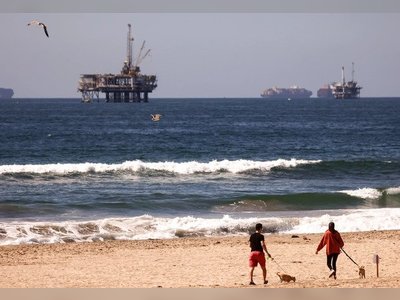Alaska Approves National Guard Deployment to Washington, D.C. in 2026 Ahead of Legal Block on Similar Mission
Governor Mike Dunleavy signs off on deployment of one-hundred Alaska Guard personnel to the capital in March 2026 despite a federal court pause on troop mission.
Officials from the Alaska National Guard disclosed to state legislators this week that Governor Mike Dunleavy has approved the activation of one-hundred service members to deploy to Washington, D.C., in March 2026 to support a federally coordinated task force.
The decision follows a Pentagon request for a three-hundred-fifty-person rapid-deployment force aimed at civil-disturbance operations, with Alaska’s adjutant-general, Major General Torrence Saxe, writing that a specialized unit will train for roles such as site security, checkpoints and personnel protection.
The governor’s office confirmed the deployment request originated from the Pete Hegseth-led U.S. Army and noted that Dunleavy approved the mission to assist in “restoring public trust and improving quality of life” in the district.
The decision arrived just as a federal judge, Jia Cobb, temporarily blocked President Donald Trump’s ongoing National Guard deployment in Washington, citing likely legal overreach and ordering the program paused until December 11 to allow for appeal.
While Alaska’s Guard is currently involved in disaster-response operations following a typhoon in Western Alaska, the newly approved “quick response force” unit is described as aligning with national-level readiness rather than local missions.
State Representative Andrew Gray voiced concerns about the cost to Alaska taxpayers, noting the Guard’s salaries, accommodation and transport will be paid federally but training and readiness could divert resources from local missions.
The timing places Alaska in the spotlight at a moment of heightened legal scrutiny over the president’s domestic use of military forces.
Similar deployments to Los Angeles, Portland and Chicago have already faced court challenges and injunctions, raising questions about the legality of deploying federally controlled troops for civilian policing absent specific statutory authorisation.
With Washington’s own troop orders extended into 2026, Alaska’s approval highlights the administration’s intent to embed such missions across the states.
The coming months will show how the court ruling impacts state-level participation and whether the Alaska deployment proceeds as planned in March 2026.
The decision follows a Pentagon request for a three-hundred-fifty-person rapid-deployment force aimed at civil-disturbance operations, with Alaska’s adjutant-general, Major General Torrence Saxe, writing that a specialized unit will train for roles such as site security, checkpoints and personnel protection.
The governor’s office confirmed the deployment request originated from the Pete Hegseth-led U.S. Army and noted that Dunleavy approved the mission to assist in “restoring public trust and improving quality of life” in the district.
The decision arrived just as a federal judge, Jia Cobb, temporarily blocked President Donald Trump’s ongoing National Guard deployment in Washington, citing likely legal overreach and ordering the program paused until December 11 to allow for appeal.
While Alaska’s Guard is currently involved in disaster-response operations following a typhoon in Western Alaska, the newly approved “quick response force” unit is described as aligning with national-level readiness rather than local missions.
State Representative Andrew Gray voiced concerns about the cost to Alaska taxpayers, noting the Guard’s salaries, accommodation and transport will be paid federally but training and readiness could divert resources from local missions.
The timing places Alaska in the spotlight at a moment of heightened legal scrutiny over the president’s domestic use of military forces.
Similar deployments to Los Angeles, Portland and Chicago have already faced court challenges and injunctions, raising questions about the legality of deploying federally controlled troops for civilian policing absent specific statutory authorisation.
With Washington’s own troop orders extended into 2026, Alaska’s approval highlights the administration’s intent to embed such missions across the states.
The coming months will show how the court ruling impacts state-level participation and whether the Alaska deployment proceeds as planned in March 2026.











